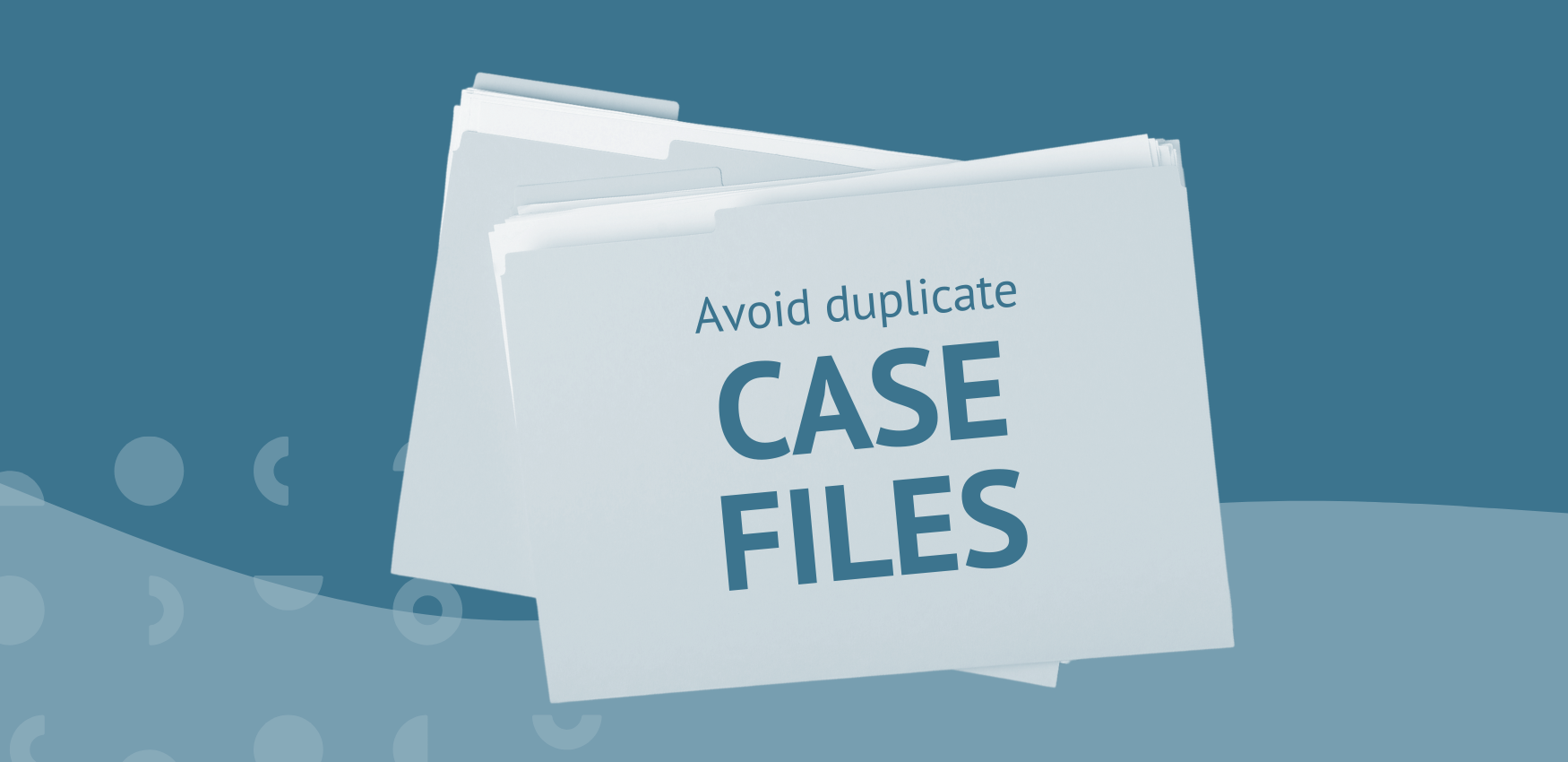3 Ways to Avoid Duplicate Case Files
February 12, 2024

The phone rings. On the other end is a family asking questions about an upcoming service. You log onto the computer to find the file and notice you have two cases with the same name.
(Don't try to tell us this doesn't happen - we all make mistakes.) 😉
In this situation, there are two things you can do next:
#1: Compare the two cases and get rid of your duplicate right away.
Or...
#2: Quickly update the most current case file. You can delete the duplicate later when you have more time.
If we had to guess, you might choose option #2.
Why? Duplicates happen, and you likely don't always have time to clean them up when you find them.
However, if left unchecked, too many duplicate cases will lead to errors and miscommunication among staff.
When you keep your cases clean, you unify your staff, eliminate chances of error, and improve the accuracy of your reporting.
And while duplicate cases aren't 100% preventable, there are a few best practices you can implement to stay organized when mistakes happen.
Double trouble: The problem with duplicates
Is tidying up your cases even worth it? Shouldn’t that time be spent serving families?
Absolutely! However, neglecting your cases can get in the way of serving families. Duplicates can lead to:
-
Wasting time comparing the differences of each case and deleting duplicates. (You might even have to rekey information from the duplicate to the original case file - no, thanks!).
-
Looking unprofessional in front of families. If you can't find the correct case file, you might have to ask a family for the same information twice.
Lastly, duplicates are just plain confusing!
To save time and avoid errors, here are 3 best practices you can implement to stay organized when duplicate cases happen.
3 best practices for keeping your cases clean
#1: Communicate, communicate, communicate.
The first best practice for clean cases is to communicate with your team. That means following up and leaving updates so any staff member can open a case and know what's happening.
Plus, training your staff on a standard communication method when creating and updating cases can decrease the number of duplicate cases from occurring. Who creates the cases? Is it a central person, like your admin staff, or is each funeral director in charge of their cases?
Either way, a standard communication process is one way to help keep your cases clean.
#2: Keep your records in tip-top shape.
Many hands make light work. But they can also cause duplicate cases. And with several people working cases at the funeral home, you’re bound to have duplicates.
One way to keep information organized and avoid duplicates is to implement a standard way of collecting and recording case information.
For example, one funeral director might spell the decedent's name S-h-a-w-n when taking a first call. Later on, a duplicate case emerges with the name spelled S-e-a-n. In a situation like this, it's difficult to know which case is original and which has the correct name spelling.
And while having the family spell out the name each time you take a first call is a simple rule, standard recordkeeping guidelines mean you don’t have to ask the family for information you've already collected.
#3: Use technology to avoid errors and save time.
Lastly, you can use technology to avoid errors and quickly get rid of duplicate files. (Who has time to delete cases manually, anyway?)
At Passare, we recently created a Case merging tool that helps funeral directors clean up their cases in a fraction of the time.
Clean up the clutter with Passare
Cleaning up duplicate cases in Passare is simple! With our Case merging tool, you can:
-
Easily search and compare cases side-by-side
-
View key case information and select which case to keep
-
Instantly merge cases
We'll even delete the extra case for you! Cleaning up your cases has never been easier.
Time to tidy up your cases
Duplicate cases are inevitable. Managing duplicate cases manually by comparing cases, keying in data, and deleting the extra case is time-consuming and frustrating. It doesn't have to be this way!
With Case merging, duplicate cases will be a thing of the past. Don't spend any more time comparing and transferring data manually. Visit this help article to start using this feature right away or get a demo to see how you can improve efficiency with Passare.








